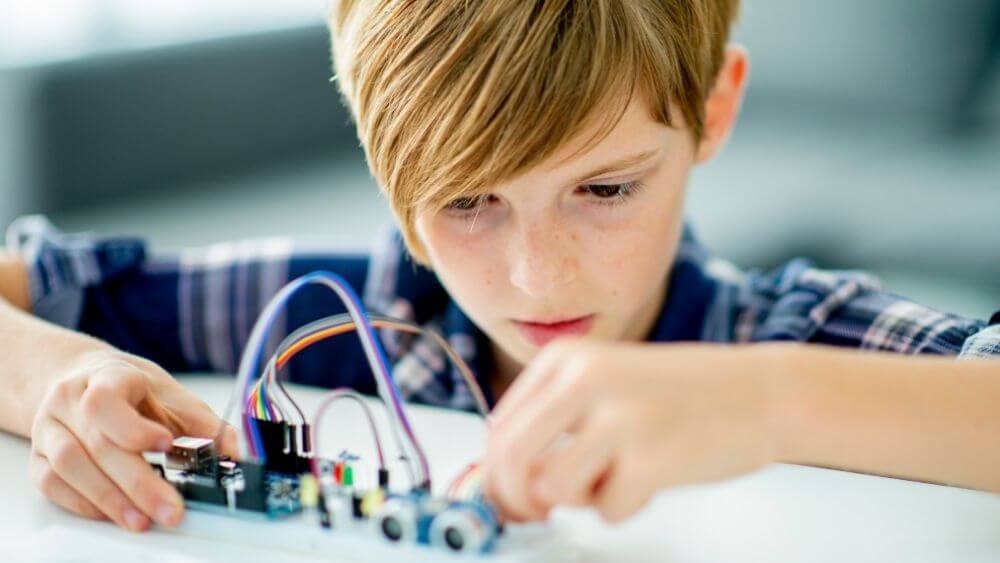Why can’t we tickle ourselves?

Why can’t we tickle ourselves?
Areas that are prone to get tickled like neck, stomach, armpits are vulnerable. Researchers suggest that laughing on getting tickled could be a defense mechanism. When we tickle our brain is so smart that it easily recognizes our movements when we predict to tickle ourselves. No element of surprise even if we tickle ourselves in vulnerable areas.
Tickiling is something that make us laugh. when someone tickle us it make us laugh or irritate us. We can easily tickle other and other can easily tickle us but when we tickle ourself it did not feel the same. It means that we can’t tickle ourself. But why??
For years, scientists have been trying to figure out exactly why you can’t tickle yourself and if there is any way to trick your brain. When someone else tickles you, it activates a part of your brain called the hypothalamus which prepares you for pain.
Those areas where we feel the tickling sensation or that are more prone to getting tickled are our neck, stomach, armpits and palm. Scientists say that tickling makes you laugh because you are signalling submission to someone who has tickled you in vulnerable position, means laughing on getting tickled by others could be defense mechanism. It has found that when touched suddenly in vulnerable areas , people laugh out to show submission so that the person who is tickling stop doing that. This shows that why some people really hate being tickled or react by flailing.
So it seems that we can’t surprise our brain. When we try to tickle ourself by moving our fingers toward our palm, stomach, armpit. Our brain gets the signal of our movement, it knows where our fingers will going to touch us so it knows already that our fingers are not going to hurt us. So brain is programmed in such a way that it predicts and recognizes our own movements. So there is no element of surprise or threat even if touched in vulnerable areas. But when we are tickled by someone else, we can’t predict precisely where their tickle attack will be on us. This unpredictability of their touch make us laugh. It also seems like a sense of agency is a key ingredient, the feeling that, you are the one in control of your body’s movements, means your own touches didn’t feel like tickles.
Let me say, I am going about to tickle my own neck, I go to move my hand and a part of my brain sends command to the appropriate muscles but another part of my brain the cerebellum also monitors my movements and the environment around me and its job is to pick up expected and unexpected sensory input and to tell the rest of my body to pay less attention to expected stuff. So when I tickle my neck, cerebellum says that these fingers will not going to harm so all muscles and nerves feel relax but if someone else does that ,the cerebellum doesn’t expect their movement and it feels something is on my neck and then my muscles and nerves react by thrashing.
Some Experiments
People who have schizophrenia, a neurological disorder that causes hallucinations, among other symptoms seem to lack of the awareness about their own movements, and they can actually tickle themslves. That might led to researchers to try and come up with scenerios where people with schizophrenia could tickle themselves. In one small experiment researcher tried waking people during REM sleep, when they probably dreaming. They figured out that since dreaming is similar to hallucination, people with schizophrenia experience the subjects might be able to tickle themselves if they tried after they were woken up from a dream. But the experiment does not work, as waking people up from REM sleep does not enable them to tickle themselves.
There is another experiment, called the body swap illusion, in which researchers had used a rubber hand illusion, a psychological trick where you can get your brain to feel like a fake hand is your own if someone else touches it, at the same time as your real hand, which is hidden from view. For this experiment, researcher did a total body switch. They had subjects look through video goggles that showed a feed from a camera on the experimenter’s head and the experimenter sat across them. Using the rubber hand illusion they were able to make the subject feel like they were inside the expeirmenter’s body instead of their own. Then, while they were having this trippy out of body experience, the subjects try to tickle themselves. But even then they rated the sensation as being less tickly than when someone else tickled their palm. Their brain still knew that they were in the driver’s seat, doing the tickling.
So if you really want to be tickled, you are gonna have to find someone else to do it for you. But wait.. wait… who want themselves to be tickled.






Responses